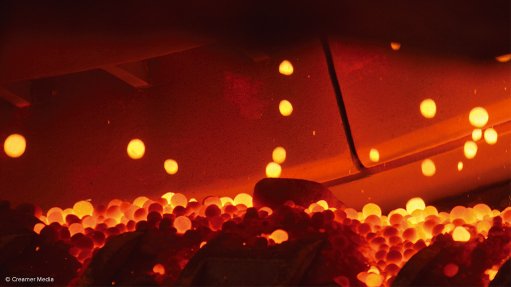Covid-19 exacerbates competition challenges, but there is opportunity for improvement
Although the Competition Commission has come a long way since 1998 in terms of investigating restrictive business practices, outgoing Competition Appeal Court judge Professor Dennis Davis and other commission members say there are still barriers to entry, increasing concentration and an economy that is not diversified enough.
The Covid-19 pandemic has had its impact on businesses and the economy, but it has also exacerbated existing challenges in the competition space, they said during the commission’s fourteenth annual conference held virtually on November 3 and 4.
Competition Tribunal chairperson Mondo Mazwai, however, believes the pandemic presents a generational opportunity to re-imagine the economy and advises the country to, in the words of Winston Churchill, not let a good crisis go to waste.
Since March, the commission has received more than 1 800 complaints related to personal protective equipment and essential food items, particularly involving excessive pricing.
The commission has brought 38 cases before the tribunal so far, whereafter settlements were reached, while two major cases are still subject to investigation. The commission has imposed about R55-million of administrative penalties in aggregate on contravening firms since March.
In addition to the pandemic having had a devastating impact on the economy, in that gross domestic product is expected to contract by R500-billion this year, the market has also suffered from corruption, which has accompanied government’s recovery and aid initiatives.
This highlights the need for increased promotion and control of competition and fair market practices.
Davis says competition law is at an inflection point globally, notwithstanding Covid-19, since economies globally are not delivering to citizenry and there are increasing levels of concentration and inequality.
He says South Africa needs to start considering what competition law should look like in the twenty-first century and that the country requires the assistance of economists and competition lawyers to look into what will animate competition law going forward.
Davis adds that competition law can contribute to dealing with problems of inequality, since markets are built by law and therefore laws impact on distributable consequences.
“South Africa definitely has to advance concepts of social justice through a market mechanism and processes of the market, which do promote social justice. For example, looking at the impact of small and medium-sized enterprises and participation in the economy.”
Berkeley Research Group associate director Phil Alves notes that the main concern before the pandemic hit was rising concentration and its impacts on competition and the performance of economies, as well as social equality concerns.
He believes there is a need to promote competition by trade liberation and regulation targeted at competition objectives.
“It does seem that government policy, in general, still sees an important role for the promotion of competition towards growth and prosperity. We do see that as a fundamental starting point and there has not been a rethink owing to Covid-19 that has changed its prioritisation.
“However, we do not know to what extent the Covid-19 recovery plan might change the way we promote competition or the means through which competition is regulated,” Alves says.
It might be time for a less traditional way of competition law enforcement, he suggests.
This while Alves says it is necessary that the State stop bailing out zombie firms, since the economy needs to be cleansed of these firms that have an unfair advantage, and replaced with firms that are capable and effective.
The short-term solution comes down to how competition policy can assist in Covid-19 recovery, rather than competition law, which has a more long-term effect.
“We can make sure that industrial programmes and recovery aid initiatives are not inadvertently increasing concentration. And if we do decide to increase concentration, we need to understand the tradeoffs that are at stake.”
Alves motivates that South Africa should rather pursue optimal competition than maximum competition by balancing promotion of competition with the protection of longer run dynamics and incentives.
Article Enquiry
Email Article
Save Article
Feedback
To advertise email advertising@creamermedia.co.za or click here
Press Office
Announcements
What's On
Subscribe to improve your user experience...
Option 1 (equivalent of R125 a month):
Receive a weekly copy of Creamer Media's Engineering News & Mining Weekly magazine
(print copy for those in South Africa and e-magazine for those outside of South Africa)
Receive daily email newsletters
Access to full search results
Access archive of magazine back copies
Access to Projects in Progress
Access to ONE Research Report of your choice in PDF format
Option 2 (equivalent of R375 a month):
All benefits from Option 1
PLUS
Access to Creamer Media's Research Channel Africa for ALL Research Reports, in PDF format, on various industrial and mining sectors
including Electricity; Water; Energy Transition; Hydrogen; Roads, Rail and Ports; Coal; Gold; Platinum; Battery Metals; etc.
Already a subscriber?
Forgotten your password?
Receive weekly copy of Creamer Media's Engineering News & Mining Weekly magazine (print copy for those in South Africa and e-magazine for those outside of South Africa)
➕
Recieve daily email newsletters
➕
Access to full search results
➕
Access archive of magazine back copies
➕
Access to Projects in Progress
➕
Access to ONE Research Report of your choice in PDF format
RESEARCH CHANNEL AFRICA
R4500 (equivalent of R375 a month)
SUBSCRIBEAll benefits from Option 1
➕
Access to Creamer Media's Research Channel Africa for ALL Research Reports on various industrial and mining sectors, in PDF format, including on:
Electricity
➕
Water
➕
Energy Transition
➕
Hydrogen
➕
Roads, Rail and Ports
➕
Coal
➕
Gold
➕
Platinum
➕
Battery Metals
➕
etc.
Receive all benefits from Option 1 or Option 2 delivered to numerous people at your company
➕
Multiple User names and Passwords for simultaneous log-ins
➕
Intranet integration access to all in your organisation

















